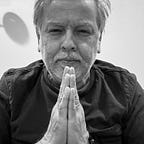Et tu, Twitter? Elon Musk’s $44 billion price tag on “free speech”
It’s political science, not rocket science — so success is not guaranteed!
The late Steve Jobs’ take on the law of unintended consequences comes to mind with Elon Musk’s pending takeover of Twitter:
“There are downsides to everything; there are unintended consequences to everything.”
Despite Musk’s eloquent statement about Twitter, “Free speech is the bedrock of a functioning democracy, and Twitter is the digital town square where matters vital to the future of humanity are debated,” many First Amendment supporters are wondering how this acquisition will pan out? Twitter, as a private company, in the hands of an eccentric, genius billionaire is not exactly a reassuring gamble on free speech. Free speech is not all that it’s cracked up to be, given that the First Amendment was conceived before the advent of — electricity, the light bulb, the automobile, the industrial revolution, semiconductors, rocket science, the information revolution, the internet, social media, et al. and, most importantly — the communications revolution.
So, a transition from Twitter BM (Before Musk) to Twitter AM (After Musk) is going to be a challenge unlike anything that Elon has faced. Let’s say it’s going to be even more challenging than rocket science — something that Musk has done quite successfully. But free speech in the social media era is more akin to political science — about which Musk does not have a clue. In addition, there are also the underperforming business aspects of a 16-year-old company in need of a major operational transformation — again, not exactly Musk’s forte. In the case of Elon’s Twitter play, the 1980s adage, “This Is not your father’s Oldsmobile,” comes to mind. Also, despite his pal, Jack Dorsey’s (Twitter cofounder) endorsement of Musk’s bid — this is going to be a difficult transition given that Twitter is where it is at today because of Jack’s mismanagement.
In a May 1, 2022, Washington Post piece, “How a billionaires boys’ club came to dominate the public square,” Michael Scherer and Sarah Ellison caution us about the increasingly powerful stranglehold that the billionaire founders of Amazon, Meta and Tesla have — or will soon have, in the case of Musk, if his Twitter takeover becomes reality — on information networks that are ostensibly advocates of free speech:
“The information that courses over these networks is increasingly produced by publications controlled by fellow billionaires and other wealthy dynasties, who have filled the void of the collapsing profit-making journalism market with varying combinations of self-interest and altruism. It is a situation that has alarmed policy experts at both ends of the increasingly vicious ideological and partisan divides.”
They go on to quote Jon Schweppe, the policy director of the American Principles Project, a conservative think tank pushing for less moderation of conservative views on social networks as follows:
“I don’t think it’s a great commentary on the state of affairs that we are relying on a billionaire oligarch to save free speech online. It’s unfortunate that we need to have a hero. But we do.”
On the other end of the spectrum, they quote Ben Wizner, the director of the ACLU’s speech, privacy, and technology project, as saying:
“We are talking about a small handful of people who now exercise extraordinary control over the boundaries of our discourse. The importance for media and journalism is that there be a diverse ecosystem that represents the interests of many, not just of the few.”
Elon’s need to own Twitter has not been driven by its persistent nonperformance. In fact, Elon’s stated purpose to buy Twitter is because he believes that as a — “digital town square” — messaging platform it does not support “free speech,” as he sees it. But then, one person’s concept of free speech could be another person’s concept of hate speech and vice versa. How is Musk going to divine what Twitter and other social media platforms have been struggling to ascertain? People enamored by Elon Musk as he readies to take over Twitter should be careful what they wish for. This seemingly noble-intentioned power play has even odds of working the way Musk envisions. Twitter AM might not be the dawn of free speech, as many of @elonmusk followers have been promised. And apparently the markets seem to agree — as $TWTR is languishing almost 10% below Musk’s offer price a week after Twitter’s board accepted his $54.20 per share bid on April 25, 2022. The musk of Elon might not be as attractive, in the social media universe, as it has proven to be in the rocket science and EV space.
